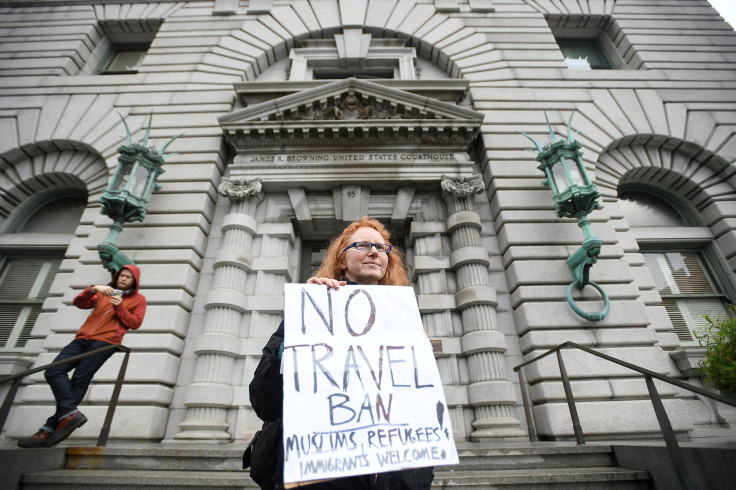Are Judges Too Political? After Trump Tweet About Court, Here's What To Know About How Judges Are Selected

President Donald Trump has been ringing the alarm over the nation's judiciary branch for weeks, and his complaining reached a new level Thursday with a message on Twitter that declared in all caps that federal judges were putting national security at risk. After a federal appeals court refused to allow the Trump administration to reinstate an executive order banning travelers from seven Muslim-majority nations, Trump tweeted: “SEE YOU IN COURT, THE SECURITY OF OUR NATION IS AT STAKE!”
Trump was referring to the ruling from a three-judge panel of the U.S. 9th Circuit Court of Appeals against his Jan. 27 executive order creating the immigration ban. The panel included two Democratic appointees and one appointed by a Republican. The court said Trump's administration failed to provide evidence that showed the ban was crucial for national security.
Trump has previously gotten testy over the nation's judiciary branch designed to provide checks and balances in government. He said Wednesday there was too much politics involved in the court system.
"I don't ever want to call a court biased," Trump said while speaking to a gathering of law enforcement officials. "So I won't call it biased. And we haven't had a decision yet. But courts seem to be so political. And it would be so great for our justice system if they would be able to read the statement and do what's right."
Days earlier, Trump accused U.S. District Judge James Robart, a federal judge in Seattle judge who suspended Trump's travel ban, of opening the United States to "potential terrorists." And on the campaign trail, Trump said U.S. District Court Judge Gonzalo Curiel, who was born in Indiana, couldn't fairly oversee a lawsuit against one of Trump's businesses, Trump University, because his family was Mexican. House Speaker Paul Ryan called the remarks “the textbook definition of a racist comment.”
Trump's ban applied to travelers from Iran, Iraq, Libya, Somalia, Sudan, Syria and Yemen and all refugees.
So are judges too political? There aren't supposed to be. Here's how the federal court system works: Congress has created 13 U.S. Courts of Appeals, 94 U.S. District Courts, the U.S. Court of Claims and the U.S. Court of International Trade. Federal judges are nominated by the president and confirmed by the Senate. They generally remain on the bench for life.
Americans tend to hold a dim view of the Supreme Court. Justices had a 42 percent job approval rating in September and haven't enjoyed an approval rating above 50 percent since September 2010. Democrats are more likely to approve of the Supreme Court. Only 32 percent of Republicans told pollsters the court was doing a good job, while 60 percent of Democrats said the same.
The Gallup poll of 1,023 adults was conducted between July 13-17, 2016 with a margin of error of 4 percentage points.
© Copyright IBTimes 2024. All rights reserved.






















